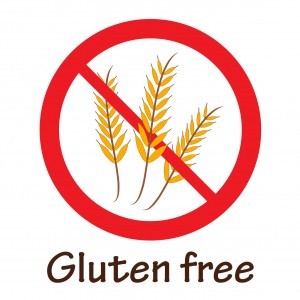Gluten-Free for All?
If you're like the average person than you may struggle trying to keep up with all the nutritional rules nowadays. Do we eat saturated fat? What about trans fat? Can we have carbs? If so, what types and how much?
[caption id="attachment_4138" align="alignleft" width="300"] There are lots of opinions on whether to eat gluten or not.
Ask 10 different fitness professionals a number of nutritional questions such as these and you are going to get a variety of answers. Consider for example what people believe about gluten.
You know about gluten right? It's the stuff that gives baked goods such as bagels, bread and pasta their stretchiness. But you also find it in sauces, dressings, gravies and many other products. Add to this the fact it may be listed by the Latin names for the wheat that contains gluten and it can hard to identify its presence and be truly gluten-free.
So why eliminate gluten from the diet? Well those that have an allergy to this protein may experience gastro-intestinal problems, inflammation, anemia and fatigue. And if you don't have celiac disease (CD) should you eliminate gluten from the diet?
Because we have been told that this protein is non-essential and therefore we don't need to have it in our diets. And even if we aren't fully allergic to gluten it is possible that we may be still be sensitive to it and benefit from a gluten-free approach.
Well that's what many food manufacturers would have you believe. When you consider that about 0.5% of the population has celiac disease but 20% of us purchase gluten-free products I'd say the food industry has done an effective job of getting the message out to switch to gluten-free products.
Why the special interest in convincing you to buy gluten-free? Well it comes down to economics. You can expect to pay 2.5 times as much, or more, for a gluten-free compared to a product containing gluten. In the USA this has grown to a 4.2 billion dollar industry. And it's not just the food industry that tells us this is the way to go.
[caption id="attachment_4137" align="alignleft" width="300"] Powered by 100% gluten-free nutrition.
Powered by 100% gluten-free nutrition.
Sports starts and celebrities are well-known for their gluten-free nutrition. Novak Djokovic and Steve Nash are a couple of the better known athletes to go gluten-free. Djokovic claims his long winning streak was attributed to eliminating gluten from the diet. Andy Murray, who won Wimbeldon in 2013, tried gluten-free briefly but said he felt weaker as a result and didn't continue with the approach.
Do you remember who Murray beat in the finals? That's right it was Djokovic.
So gluten-free may not be for everyone. In fact there may be minimal health benefits to those who don't have celiac disease. Worse still almost all products labelled as gluten-free are processed. And as with many other packaged foods the gluten-fre varieties tend to be low in fiber, B vitamins, iron and folate.
Looking back to a few blog posts ago I wrote about nutrients that we tend to be deficient in and the list looks very similar to the nutrients missing in gluten-free products.
So what are we expected to do?
Well first of all realize that unless you have been diagnosed as having CD it is probably fine to have gluten in moderation. As well be aware that if your reasons for eating gluten-free are to be healthier keep in mind the downsides in terms of cost and missing nutrients.
In the end if we go back to the basics and eat protein, veggies, fruit and drink water we can add some pasta, cereal or bread from time to time and be just fine.
Chris [fb-like]
When you subscribe to the blog, we will send you an e-mail when there are new updates on the site so you wouldn't miss them.

Comments